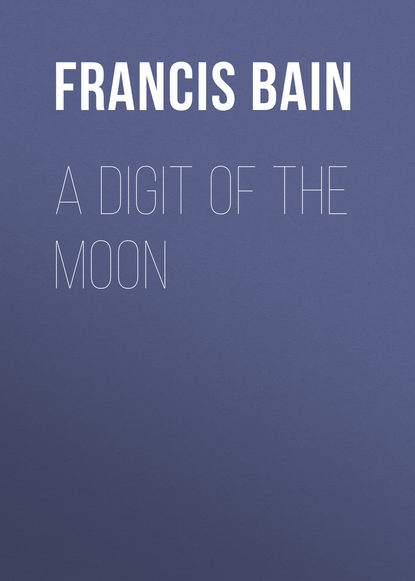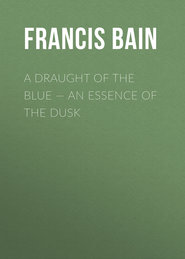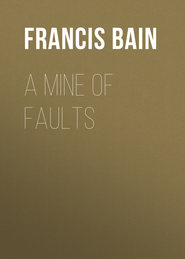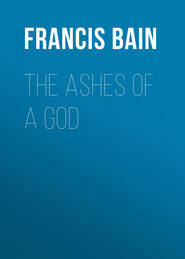По всем вопросам обращайтесь на: info@litportal.ru
(©) 2003-2024.
✖
A Digit of the Moon
Настройки чтения
Размер шрифта
Высота строк
Поля
Alluding to the King's name: see n. p. 1. 11 (#chap00efn11text)i. e. 'the passion, or the rosy-blush, of love.' (Pronounce the two first syllables to rhyme with 'among,' with a north-country g.)
20
These Nagas are beings of serpent nature, but often confounded with men: e. g. in Kathá Saritságara, I. 6, the nephew of the King of the Nágas is said to be a Brahman. Their women are of inconceivable loveliness.
21
Very few of the stories are really riddles, but they all give the Princess an opportunity of displaying her ready judgment and acumen. It will also be seen, that owing to the device with which the story concludes, there are really only nineteen days, instead of twenty-one.
22
Pronounce Russakósh. The name refers to the part he will play in the story: it means both 'a ball of mercury,' and 'a treasury of taste, wit, literary sentiments or flavours,' a sort of walking encyclopædia. The King's companion is a salient figure in Hindoo drama: he is a sort of Sancho Panza, minus the vulgarity and the humour.
23
This colloquialism is an exact facsimile of the Sanskrit expression.
24
A play upon his own name.
25
Ganésha, the god of obstacles and success. See Day 1.
26
An old name for Bhíls and other wild tribes.
27
'A tree with orange-coloured fragrant blossoms.'
28
The Hindoo Vulcan, sometimes, as here, used for the Creator, dhatri = Plato's [Greek: demiourgos]. Sanskrit literature is the key to Plato; much of his philosophy is only the moonlike reflection of Hindoo mythology.
29
Hindoo poets see a resemblance between rows of bees and eye-glances.
30
The Indian cuckoo. The crane is a by-word for inward villainy and sanctimonious exterior. The chakrawáka, or Brahmany drake, is fabled to pass the night sorrowing for the absence of his mate and she for him.
31
The very echo of Martial.
32
i. e. Rasakósha himself. The allusion is to a power, possessed by adepts in Yoga, of detaching the soul from the body. See Day 11.
33
The goddess of fortune and wealth, who was churned up out of the ocean, and according to some, appeared reclining on an open lotus. Coral is one of the nine gems.
34
i. e. an atheist. The opinions of this philosophical school may be found sketched in the Sarwa-Darshana-Sangraha, § 1.
35
'Wielder of the thunderbolt,' an epithet of Indra, the god of rain.
36
Perhaps only a Hindoo could appreciate the dexterity with which this story is placed first, and thus the favour of Ganapati, as it were, secured for the rest.
37
Just as the clothes of the Princess change colour every day, so does the state of the King's mind, which goes through a regular series of transitory emotions (wyabhichári).
38
i. e. 'seat of justice.' The meaning is important, as the sequel shows. It does the Princess credit that she notes and remembers it.
39
To kill, let alone to eat, a cow, would be of course one of the most deadly sins of which a Brahman could be guilty.
40
See Manu II., 227, sqq.
41
I remember to have heard a very inferior version of this story from an old Pundit with whom I read Maráthi.
42
Smara means both love and memory.
43
Both words mean image, reflection.
44
20
These Nagas are beings of serpent nature, but often confounded with men: e. g. in Kathá Saritságara, I. 6, the nephew of the King of the Nágas is said to be a Brahman. Their women are of inconceivable loveliness.
21
Very few of the stories are really riddles, but they all give the Princess an opportunity of displaying her ready judgment and acumen. It will also be seen, that owing to the device with which the story concludes, there are really only nineteen days, instead of twenty-one.
22
Pronounce Russakósh. The name refers to the part he will play in the story: it means both 'a ball of mercury,' and 'a treasury of taste, wit, literary sentiments or flavours,' a sort of walking encyclopædia. The King's companion is a salient figure in Hindoo drama: he is a sort of Sancho Panza, minus the vulgarity and the humour.
23
This colloquialism is an exact facsimile of the Sanskrit expression.
24
A play upon his own name.
25
Ganésha, the god of obstacles and success. See Day 1.
26
An old name for Bhíls and other wild tribes.
27
'A tree with orange-coloured fragrant blossoms.'
28
The Hindoo Vulcan, sometimes, as here, used for the Creator, dhatri = Plato's [Greek: demiourgos]. Sanskrit literature is the key to Plato; much of his philosophy is only the moonlike reflection of Hindoo mythology.
29
Hindoo poets see a resemblance between rows of bees and eye-glances.
30
The Indian cuckoo. The crane is a by-word for inward villainy and sanctimonious exterior. The chakrawáka, or Brahmany drake, is fabled to pass the night sorrowing for the absence of his mate and she for him.
31
The very echo of Martial.
32
i. e. Rasakósha himself. The allusion is to a power, possessed by adepts in Yoga, of detaching the soul from the body. See Day 11.
33
The goddess of fortune and wealth, who was churned up out of the ocean, and according to some, appeared reclining on an open lotus. Coral is one of the nine gems.
34
i. e. an atheist. The opinions of this philosophical school may be found sketched in the Sarwa-Darshana-Sangraha, § 1.
35
'Wielder of the thunderbolt,' an epithet of Indra, the god of rain.
36
Perhaps only a Hindoo could appreciate the dexterity with which this story is placed first, and thus the favour of Ganapati, as it were, secured for the rest.
37
Just as the clothes of the Princess change colour every day, so does the state of the King's mind, which goes through a regular series of transitory emotions (wyabhichári).
38
i. e. 'seat of justice.' The meaning is important, as the sequel shows. It does the Princess credit that she notes and remembers it.
39
To kill, let alone to eat, a cow, would be of course one of the most deadly sins of which a Brahman could be guilty.
40
See Manu II., 227, sqq.
41
I remember to have heard a very inferior version of this story from an old Pundit with whom I read Maráthi.
42
Smara means both love and memory.
43
Both words mean image, reflection.
44









